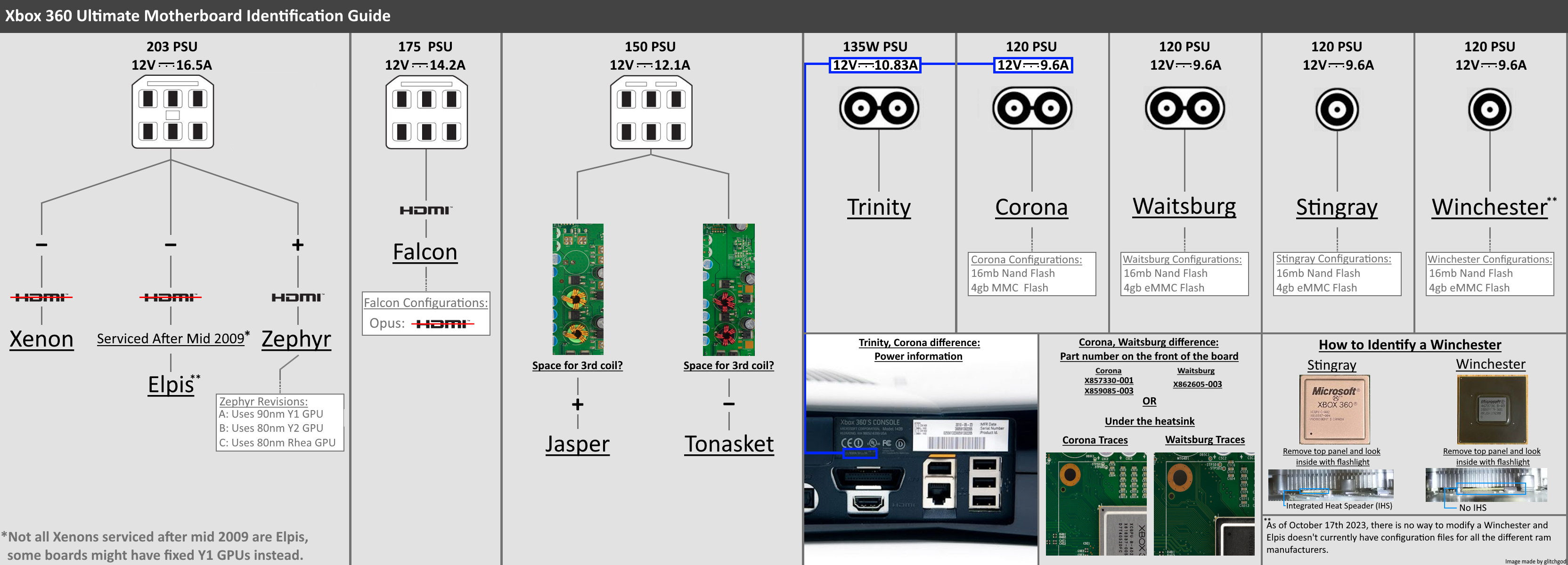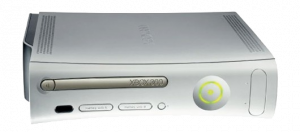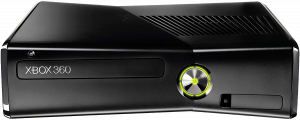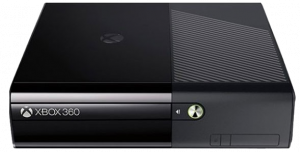Xbox 360:Getting Started
Identifying Your Motherboard
Over the years, Xbox 360 consoles have had several motherboard revisions. It is important to identify the motherboard revision to see what exploits are compatible and work best with your console. The steps for the mod itself will also vary depending on the motherboard. The easiest way is to look at the motherboard's PSU connector (phat) or required amprage (phat or Slim). The chart below can be used to easily identify your motherboard revision.

If you just want to flash your DVD drive, you can flash any phat or slim model on any dashboard version following this guide. Slim DVD drives are flashable if they came with a Lite-On DG-16D4S (these usually came with Trinity consoles), but if they have a Hitachi DL10N or DG-16D5S you need to buy an aftermarket DVD drive PCB.
If you want full system access, see the recommended exploit chart to determine the best hack for your model.
Xbox 360 ("phat")
Phat consoles with a white DVD tray and no HDMI were Xbox 360 Core models and shipped with Xenon boards and no hard drive or memory unit.
There were also Xbox 360 Arcade consoles, which had the white DVD tray like the Core but also had HDMI. Early Arcade consoles came with a Falcon motherboard and an external memory unit, but Jasper Arcades also had a larger 256MB (later changed to 512 MB) NAND to have a built in memory unit. They also didn't come with a hard drive. You can also see if a phat Xbox 360 has an internal memory unit by going in System Settings > Storage in the dashboard.
Consoles with chrome DVD trays originally shipped with a hard drive. They can include various motherboards with or without HDMI, and with a 16 MB NAND.
Retail Xenons, Zephyrs, and Falcons always have a 16 MB NAND. Phat developer consoles instead have a 64 MB NAND including Jaspers.
If your console is running dashboard 2.0.7371 or lower, they have access to the JTAG exploit. However, some consoles with 7371 were patched against the JTAG exploit, in which case their CB needs to be checked after a NAND dump.
If your console's dashboard is above 2.0.7371, you can use various RGH methods. 2.0.14699 and lower on Phats have access to RGH 1, but anything newer can use RGH 1.2, RGH 2 (non-Xenon), RGH 3, and on Xenon/Zephyr, EXT_CLK.
R-JTAG requires dashboard 2.0.14719 or higher, and R-JTOP requires dashboard 2.0.15572 or higher.
Xbox 360 Slim
Early slims with a glossy case came with a Trinity board and hard drive, but ones that came with a 4GB memory unit came with a matte case. Later on, Trinity consoles that shipped with hard drives were also switched to a matte case. Corona/Waitsburg consoles were always matte.
4GB Trinity slims had the memory unit on a daughterboard with the main NAND still being 16 MB. 4GB Corona/Waitsburg slims instead had the eMMC built onto the board as the main NAND, thus making NAND dumps require different tools and steps. The only way to see if a slim has an internal 4GB memory unit without opening the shell is to go to System Settings > Storage in the dashboard.
Trinity devkits have a 512 MB NAND like Arcade Jaspers, but Corona devkits have a 4 GB eMMC like retail versions.
In Q1 2012, Microsoft revised the Corona motherboards to Waitsburg motherboards and removed the traces for the POST_OUT solder pad. This means you need to use a postfix adapter on the XCGPU in order to have access to RGH, but are otherwise very similar to Corona.
Slims can use most RGH methods, but cannot use R-JTAG/JTOP or the original JTAG since their motherboards have no JTAG headers, and the CB patched JTAG by that point anyway. They also cannot use RGH 1 or EXT_CLK.
Xbox 360 E
Winchester boards can be differentiated from a Corona board by looking through the side vent with a flashlight or by looking at the XCGPU and seeing if it is a Corona Stingray or Winchester. Winchester motherboards also have less components on them.
Stingray boards are slimilar to Waitsburg, but with some features cut to have a lower price point for the console. Thus they also need a postfix adapter and have the same RGH methods available.
Winchester boards are not exploitable in any way. This includes RGH/JTAG, drive flashing, and ODEs.


